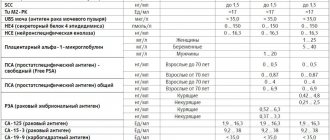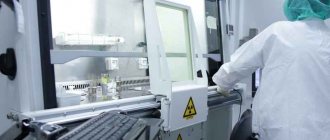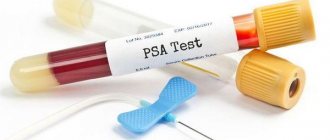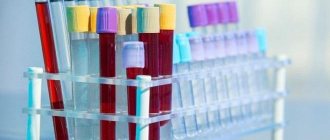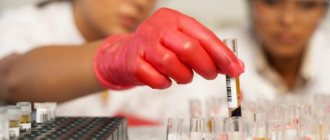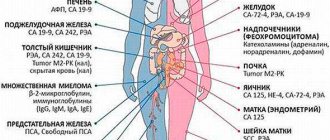Who should get tested?
Blood sampling for tumor markers should be done for preventive purposes. The procedure is especially important for the following groups of people:
- Workers of enterprises whose products are harmful to health and cause cancer cells.
- Residents of large cities, characterized by dust and many chemical plants.
- People predisposed to developing a malignant tumor.
Donating blood for tumor markers is necessary for women who want to stay healthy. Thanks to a screening examination, it is possible to diagnose malignant tumors and pathologies in the first stages of development. The earlier the disease is detected, the higher the chance of overcoming it. An analysis should be done annually if there is a predisposition to cancer. If among your relatives there are people suffering from malignant tumors, then the likelihood of developing cancer increases. To prevent the development of the disease, it is necessary to undergo regular examination of the body.
Decoding the obtained indicators shows information about the state of health of internal organs, identifies pathologies, malignant and benign tumors. The procedure allows you to detect the disease at an early stage of development, when there is a high chance of recovery. When the disease is advanced, at an advanced stage, it cannot be treated. In this case, complete, stable remission and elimination of pain symptoms are achieved.
Indications for analysis
Chronic fatigue syndrome is a characteristic symptom of many types of cancer. If you constantly feel drowsy, your performance decreases, apathy appears, and you lose weight for no reason, then you cannot attribute all negative manifestations to a lack of rest and nervous overload. It is important to get examined, donate blood for a tumor marker, to find out if there is an initial stage of a malignant tumor process.
A referral for analysis to clarify the level of carbohydrate antigen 125 is given by a specialist if a set of specific signs is present:
- for two or more months the temperature remains at 37.237.3 degrees,
- lymph nodes enlarge for no apparent reason,
- Nausea bothers you, vomiting occurs periodically regardless of food intake,
- discomfort occurs when urinating or defecating,
- painful sensations of varying strength appear during sexual intercourse,
- pain occurs in the ovarian area,
- a woman notes the presence of bloody or brownish discharge outside of menstruation.
A set of negative signs indicates a high probability of pathological processes in the ovaries, including malignant complications.
On a note! The carbohydrate antigen 125 test is an effective method for detecting cancer in ovarian tissue.
What types of tumor markers exist
Depending on the location of the disease, gender and age of the patient, different types of tests are used. The procedure for identifying antigens includes over 200 types. Each individual species shows a specific protein from a particular organ or region of the body. The attending physician, when choosing the type of cancer marker, is based on the symptoms of complaints, taking into account the age and gender of the patient. A well-chosen examination will allow you to achieve the correct results and establish the correct diagnosis.
Among them are markers that diagnose the mammary glands in women, the circulatory system, lung tissue and kidneys. Also, a special analysis reveals a malignant formation or cyst of the prostate male organs. For men, certain types of tests have been developed that are aimed at the male body, taking into account its specifics and characteristics. The CA 125 marker reveals pathological changes in the ovaries in the female body. The attending physician decides which type of analysis to use for the patient.
Do you need any preparation before taking the test?
It should be noted that preparation is not only necessary, but also extremely important to obtain the most reliable results. The biomaterial for the analysis is blood taken from the ulnar vein. Rules to follow before donating blood for pancreatic tumor markers:
- do not eat food 8 hours in advance, since the concentration of the molecules being studied changes during digestion;
- within 1 day, completely eliminate from the diet fatty, fried and smoked foods that stimulate the active synthesis of substances of a similar nature to tumor marker 19-9, which will lead to false positive results;
- in 30 minutes, reduce as much as possible physical or emotional stress, which significantly changes the microstructure of epithelial cells and leads to unreliable indicators;
- do not smoke for 30 minutes;
- 1 day in advance (in agreement with the attending physician) limit the intake of medications. If it is impossible to cancel them, notify the laboratory in advance;
- Indigenous residents of the Caucasus should also notify the laboratory of their nationality.
What is ovarian cancer
Ovarian oncology is a malignant tumor located on the tissues of the ovary. Of the general statistics of mortality from cancer, 5% is occupied by oncology of the female prostate organs. The likelihood of the disease increases with age-related changes and hormonal processes in the body. Women aged 40 years and older are susceptible to ovarian disease.
The tumor is characterized by rapid growth, the cancer cell is actively dividing, spreading a malignant effect on the body. The causes of the disease are not fully understood. Experts suggest that oncology develops under the influence of the following factors:
- Late birth.
- Genetic predisposition.
- The result of abortion.
- Miscarriages.
- Chronic inflammation of the ovaries.
- Cysts and benign tumors of the female organs.
- The effect of hormonal contraceptives used orally.
- Lack of breastfeeding after childbirth.
Bad habits such as smoking and excessive alcohol consumption provoke ovarian cancer. Early onset of puberty and late menopause are also causes of the development of malignant formation of the female prostate organs. Timely diagnosis and examination make it possible to identify oncology at an early stage and begin timely treatment. Tumor markers are a way to determine oncology by collecting venous blood. The examination takes from one to ten days. The CA 125 test is used to diagnose a malignant ovarian tumor. Women who have reached adulthood are recommended to undergo preventive testing annually.
Cancer test results
If as a result the blood showed more than 100 units, then this may indicate oncology. That is why the doctor usually prescribes repeat tests after a certain period of time.
The antigen itself does not always indicate a malignant neoplasm in the ovaries and can be secreted by tumors in other organs. Let's look at the list of organs that can secrete the CA-125 antigen during malignancy.
| Organ | Probability |
| Liver | 84 % |
| Stomach | 87% |
| Lungs | 85 % |
| Guts | 89 % |
| Pancreas | 91 % |
| Epididymis | 98 % |
| Fallopian tubes | 96% |
| Uterus | 92 % |
| Other | 65% |
| Mammary gland | 90 % |
Ovarian cyst
Usually, if a woman has an ovarian cyst, the tumor marker may be higher than normal - up to 60-70 units/ml. A cyst is a benign formation that can later develop into cancer, so this disease needs to be treated urgently.
This especially applies to women over 40 years old and those? who has hormonal imbalance. It is imperative to undergo and be tested for the CA-125 antigen once every six months, since at a later age the risk of developing a cancerous tumor is higher.
NOTE! If, after repeated analysis, the value itself is also exceeded by 2 times or even increases, then this increases the chance of detecting malignant neoplasms in the body. In this case, the attending physician conducts additional studies and tests.
How to prepare the body for analysis
Modern medical equipment is used to carry out laboratory blood tests. But to obtain undistorted indicators, the patient needs to prepare for the procedure.
Preparation for analysis includes the following points:
- Venous blood is collected on an empty stomach. The interval between the procedure and analysis should be eight to ten hours. During this period of time, you can drink a couple of glasses of pure water without flavor impurities. This will relieve the feeling of hunger and bring a feeling of satiety and a full stomach.
- Avoid drinking tea and coffee on the day of the procedure. This will result in a distorted result and the test performed will not be accurate.
- Active and passive smoking must be stopped three days before the test. You should also avoid drinking alcoholic beverages. Ethanol quickly penetrates the blood and changes its composition. This changes the analysis indicators and makes them erroneous.
- Fatty, salty, fried foods contribute to an increase in CA 125. Therefore, the consumption of such foods should be kept to a minimum.
- Medicinal drugs affect the level of antigens in the blood. If it is impossible to suspend the course of therapy, then you must inform your doctor about taking the drug.
- Excessive physical activity and stress on the body negatively affect the performance of the test. During the period of preparation for the analysis, it is better to refrain from playing sports, visiting gyms and fitness centers.
- Stress, emotional tension and psychological stress distort the accuracy of the results. Therefore, during preparation for blood sampling, emotional shock and nervousness should be avoided.
- You should not donate blood during your menstrual cycle. At this time, hormonal processes occur in the body that affect the examination process.
Compliance with the above recommendations will allow you to obtain an accurate examination result and identify the disease. The intervals between repeated tests should be at least three months.
Preparing for a blood test
The analysis for the CA-125 tumor marker is highly sensitive, so in order to get the most accurate result, you need to carry out careful preparation several days before taking the test. Venous blood is taken for analysis. Rules for taking the analysis:
- Blood is donated strictly on an empty stomach. The night before you should not overeat, you are not allowed to drink strong tea, coffee, or drink alcohol. It is advisable to drink only water. Strong drinks may give a false positive result.
- On the eve of the test, you cannot massage or conduct examinations such as ultrasound, radiography, bronchoscopy, or biopsy.
- When preparing for the procedure, you should follow a diet, excluding fried, smoked, marinated, fatty foods, and spicy foods.
- You should not smoke the day before or on the day of the test.
- You should stop taking medications a few days before the screening. If this is not possible, the attending physician is notified.
- The test should be taken after menstruation, before ovulation occurs, and the day of the cycle should be recorded.
- On the eve of the test, you should not do a lot of physical work or be excessively active. The nervous system must be at rest; emotional instability can distort the result.
In paid laboratories, analysis processing usually takes 1-3 days, in regular clinics sometimes up to 10 days.
What is achieved by examining the CA 125 marker?
The CA 125 antigen is located on the membrane cells of the tumor formation that spreads to the ovaries. Specific protein is found in moderate quantities in the body of a healthy, mature woman. Oncology of this organ is a serious disease for women of all age categories. The neoplasm takes on various histological forms and types.
The concentration of the substance in the body increases during the menstrual cycle, as well as during pregnancy. Therefore, you should not donate blood for CA 125 during these periods of time. Protein is contained in the uterine fluid, without penetrating into the blood. Also, in minimal quantities, the antigen is diagnosed in the abdominal cavity and in mesothelial tissues.
The threshold content of a specific protein of this type in the body is 35 U/ml. The obtained patient's blood is subjected to laboratory testing. The doctor is required to be scrupulous and professional. A carefully and qualitatively studied analysis will help an accurate, error-free diagnosis and identification of pathologies.
What does the CA-125 tumor marker show?
Testing for the CA-125 tumor marker in oncology is a very effective diagnostic method for identifying tumors in the ovaries. Studying the level of CA-125 tumor markers not only makes it possible to diagnose the uterus and ovaries, but also recurrent cancer processes after therapy and control of metastasis, because this indicator also increases when metastases affect:
- pancreas;
- lungs;
- mammary gland;
- uterine mucosa;
- liver;
- serous membranes.
When malignant cells spread to the above areas, the indicator of this tumor marker will increase significantly. It is worth noting that in addition to detecting cancerous lesions, a blood test for CA-125 levels can be used to detect endometriosis, tumors and detect cysts in the ovaries.
We recommend reading: What tumor markers for women need to be taken, their norm and explanation
Why are the numbers rising?
If the permissible norm in women is exceeded, a malignant ovarian tumor is suspected, especially if the antigen norm is increased by 2 times. But ovarian cancer is not the only suspected disease. A high content of a specific protein can signal oncology or pathological processes in the mammary glands, uterine disease, and endometrium. The formation of cancerous tumors of the rectum, stomach, pancreas, lung tissue or liver is also possible. When examining the results, the reasons why the indicators fluctuate are determined.
Carrying out a test does not guarantee a correct diagnosis. Even in acute and advanced forms of oncology, the antigen level does not exceed 100 U/ml. It has been proven by statistics and medical experts that in ovarian cancer the indicator is elevated in 80% of patients to 135 U/ml and higher. The percentage ratio remains unchanged also for other forms of oncology. The CA 125 test indicates the source of the problem and the suspected tumor or cyst. The malignancy or benignity of the disease is determined by an additional comprehensive examination, computer diagnostics, tomography, and biopsy.
Supposed reasons for fluctuations in indicators
The level of a specific substance in the body can increase and become concentrated for the following reasons:
- Proliferation of cells of the inner layer of the uterus, endometrium. A common gynecological pathology of the internal reproductive organs.
- A benign ovarian tumor filled with fluid.
- Inflammatory diseases of the ovaries caused by bacteria and microbes.
- Sexually transmitted diseases transmitted through sexual contact.
- Pleurisy is a lung disease, an inflammatory process of the outer film of the chest, covering the organ from the inside.
- Progressive form of hepatitis, liver cirrhosis.
- Inflammatory processes of the pancreas, pancreatitis.
The reasons for the increase in indicators listed above indicate the ambiguity of the tumor marker. The test indicates a problem area of the body, but to establish an accurate diagnosis, a comprehensive examination and additional procedures are necessary. Regular medical supervision, systematic examination, and monitoring of the course of diseases and symptoms are important.
In some cases, rates vary by age. After 40 years, a woman’s body undergoes hormonal and physiological changes. The release of hormones is accompanied by an increased concentration of the CA 125 marker. After 50 years, the antigen norm should not exceed 10-15 U/ml.
Norm
Normally, CA-125 tumor markers are present in every woman’s body, but their quantity should be minimal. When analyzing the CA-125 tumor marker, the norm for women usually does not exceed 15-35 U/ml, however, in women after 40 (sometimes in women after 50 years), as a rule, the level of this antigen can increase to the limit values, or even a little more . Also, slight increases in tumor marker concentrations are possible during menstruation, during acute respiratory viral infections, or in the first trimester of pregnancy.
We recommend reading: What tumor markers should be tested for breast cancer?
In the table by age compiled by the Ministry of Health, this hormonal antigen does not change its value depending on age, except during menopause, when hormonal changes occur. If the indicators exceed the norm several times, it is necessary to take a blood test several times to monitor the dynamics of the condition. Additional examinations, despite the results of the analysis, will help more accurately identify the presence or absence of oncology.
Decoding the results
A specially designed table of indicator norms will help you decipher the results obtained. The value of elevated indicators is determined by the attending physician, because inflated numbers may indicate a complex of diseases.
In the body of a healthy woman, the antigen level does not exceed 35 U/ml. For men, the permissible content is 10 U/ml. In some cases, tumor formation at an early stage of development does not affect the increase in test results. Therefore, it is strongly recommended to be tested twice, even if the acceptable antigen level is not elevated. The study should be confirmed by additional methods to exclude the occurrence of pathology.
An increase in the indicator to 38-40 U/nm indicates the formation of a cyst, a benign tumor. Inflammatory processes also affect increased levels of specific proteins. A neoplasm considered benign must be regularly examined in order to exclude a negative impact on internal organs. If left unattended, a tumor can develop into a malignant one, exposed to external or internal factors.
An increase in values to 300 U/ml indicates oncological processes in the ovaries. Having received this result, you should immediately carry out additional diagnostic methods and begin treatment. Delay in treatment can be fatal. If curing the disease is impossible, stable remission and elimination of pain symptoms are achieved with the help of medications and a number of procedures.
An increase to 60 U/ml suggests the formation of an ovarian cyst. The neoplasm is not malignant, but in the absence of regular monitoring it can cause harm to internal organs, body functions and the female genitourinary system. An ovarian cyst can cause disruption of hormonal levels and the functioning of the reproductive organs.
In men, exceeding the permissible antigen level of up to 100 U/ml indicates prostate or chest cancer. In case of high indicators, a set of additional examinations is prescribed, including ultrasound, computer diagnostic methods, and biopsy. A repeat PSA analysis is carried out, specializing in identifying oncology of the male internal genital organs and processes.
If the antigen level is below normal, it means that a disease of a different nature is developing, not related to an ovarian tumor. In this case, blood, stool and urine tests are taken, and hormones are examined to diagnose the disease. It is important to remember that indicators above normal are not always cancer. This may be a signal of the development of pathologies of internal organs, ovaries and the genitourinary system. Establishing a diagnosis by using one marker is not professional.
Indicators for benign formations
Cysts and benign tumors do not affect the increase in antigens above the permissible norm. The standard content of specific proteins CA 125 is 35 U/ml. The tumor marker concentration is constant in the following formations:
- A follicular cyst is a benign formation caused by the lack of ovulation, reaching a diameter of 5-7 cm. Despite the positive nature of the tumor, its growth leads to dysfunction of the ovaries and genitourinary system. Constant monitoring and surgical intervention are required.
- Corpus luteum cyst. Another name is luteal tumor. Formed on the ovaries as a result of the influence of the pituitary hormone. The proper functioning of the corpus luteum is disrupted, internal fluid accumulates, which leads to the formation of a cyst that requires proper monitoring.
- A dermoid cyst is a tumor, congenital or resulting from injury. The nature of the neoplasm is benign, treatment is surgical.
- Initial stage serous cyst.
Ovarian cancer
If benign results are obtained, an additional, comprehensive examination is necessary. Reduced indicators do not guarantee the absence of cancer. The first stage of a malignant tumor is not always manifested by the release of antigens. The presence of a cyst and benign neoplasm on internal organs is a disease that requires observation. As the tumor grows, surgery may be required. Also, if left untreated, the cyst can mutate into a malignant formation.
Examination during pregnancy
During the period of bearing a child, in the first trimester of pregnancy, the level of the CA 125 antigen slightly exceeds the permissible norm. If the concentration reaches 1200 U/ml, this is a possible signal of the development of fetal pathology, a disruption of the internal processes of the body. The attending physician, with the help of additional tests and examinations, finds out the reason for exceeding the permissible tumor marker norm and prescribes the necessary treatment. If a woman has previously suffered from ovarian or appendage cancer, the protein concentration may signal a relapse and return of the malignant tumor. Consultation and observation of a doctor at this stage is vital.
The content of the substance in the body, close to the borderline level - 35 U/ml, occurs in a woman during lactation or breastfeeding. The concentration of the antigen is due to hormonal changes and is not a pathology or tumor signal. Treatment is not prescribed; after feeding, the indicators normalize naturally.
Ca 125 in men blood test
Ovarian tumor marker CA125 is a specific protein (glycoprotein), an increased level of which indicates the development of cancer of the organ. To detect pathological changes, the patient undergoes a laboratory blood test. Medicine knows more than 100 such markers, each of which is responsible for a specific type of oncology. The glycoprotein is present in epithelial malignant cells of the ovaries, kidneys, pancreas, intestines and bronchi. It is found in breast milk, amniotic fluid and blood during pregnancy, and this is normal. This marker is of great importance in the diagnosis of oncological processes.
If ovarian cancer is suspected, the oncologist prescribes a venous blood test for tumor markers. The norm for CA125 is up to 35 IU/ml. Their increased concentration will indicate the possible occurrence of a malignant process in the body. In addition to a blood test, it will be necessary to conduct additional studies, since only a comprehensive examination can provide accurate diagnostic data. Sometimes a high level of glycoprotein is observed in patients with peritonitis, pleurisy, pericarditis, and ovarian cysts. Inflammatory processes of the pelvic organs also often cause a similar phenomenon.
Also, the level increases to 35 IU/ml during menstruation and pregnancy. There is no need to worry, because this phenomenon is normal. The protein enters the bloodstream during natural processes in a woman’s body from the endometrium, mucinous and serous fluid of the uterus.
Not all types of ovarian cancer have elevated levels of CA125. It is likely that the disease will not manifest itself in this way for certain reasons. Only in 80% of cases an increase in the level of tumor markers is observed in the patient’s blood. Women whose immediate family members have had ovarian cancer have a much higher risk of developing cancer.
A blood test for tumor markers is used for:
- determining the presence or absence of a tumor in the body;
- studies on the malignancy of the formation;
- determining the effectiveness of treatment methods;
- disease control in order to respond in time in case of relapse.
As a rule, such an analysis should be done at three stages of the disease. The first is to confirm or refute the diagnosis. The second is during the start of therapeutic activities. And the last one - at the end of treatment, to compare the data and determine the effectiveness of the therapy. If treatment is effective, glycoprotein levels will be normal.
The biomaterial used for laboratory research is blood from a vein. To ensure the most reliable examination results, a person needs to adhere to certain recommendations.
- The analysis must be taken in the morning. The patient should not eat food the day before donating blood.
- 3 days before the expected analysis, it is necessary to exclude alcohol-containing, fatty, spicy, and fried foods from the diet.
- Smoking is not allowed on the day of the study.
- It is better to stop taking medications to prevent their effect on blood composition.
- You will also have to refrain from physical activity.
- The person must be completely calm before blood collection. To do this, sit indoors for about 15 minutes.
- The attending physician should be warned about previously performed (approximately 7 days in advance) therapeutic procedures.
- For the test results to be reliable, it is advisable to take it on the 3rd day after the end of menstruation.
After the blood is collected, it is sent to the laboratory for analysis. This is followed by deciphering the tumor marker for ovarian cancer. It must be carried out by qualified specialists, since the further actions of the attending physician depend on this stage. Laboratory tests must be taken with special responsibility, since this is the first stage in diagnosing a dangerous disease - ovarian cancer.
If the transcript indicates that the glycoprotein level is elevated, do not panic. To accurately confirm the diagnosis, you will need to undergo several more necessary procedures.
There are many diseases in which tumor markers can cross the threshold of 35 units. Thus, an ovarian cyst is accompanied by an increase in levels in 82% of patients. With endometriosis, the concentration increases in 84% of cases. Peritonitis, pleurisy, pericarditis, and genital infections have high levels of CA125 in 70% of cases. With hepatitis, chronic pancreatitis and liver cirrhosis, the level of tumor marker may be elevated in 68-70% of cases. Inflammation of the uterine appendages leads to an increase in the concentration of glycoprotein in 80% of patients. In these diseases, the level of CA125 can reach 100 IU/ml, and this will not be an indicator of the presence of ovarian cancer.
If the SA level exceeds 100, there is reason to be wary. With such indicators, the presence of cancer cannot be ruled out. In this case, the patient is sent for re-examination. Sometimes you may need several of them. Then the result is evaluated in dynamics, which gives more accurate results.
CA 125 is not a specific marker and is used to diagnose not only ovarian cancer. Its level may be elevated in other cancers. For example, cancer of the fallopian tubes, endometrium and ovaries are accompanied by an increase in this indicator in 96-98% of cases. If breast cancer is present, the increase occurs in 92% of patients, in the case of pancreatic cancer - in 90%, in case of malignant tumors of the rectum and stomach - in 88%. The rate can increase in 85% of cases with lung and liver cancer.
Preventive examination
Tumor marker CA 125 is a high molecular weight glycoprotein that every woman should know about. With age, hormonal and physiological changes occur in the body. The period of menopause and the onset of menopause is accompanied by complications, diseases of the ovaries and genitourinary system. The CA 125 test identifies emerging pathologies of the internal reproductive organs. Women over 40 years of age are recommended to undergo preventive examinations annually to rule out cancer.
A genetic predisposition to malignant tumors is also an indication for antigen testing. Environmental pollution, chemicals and unhealthy foods contribute to the development of cancer. The CA 125 tumor marker makes it possible to identify a dangerous disease at an early stage of development, which increases the chances of recovery. Missed treatment time leads to death. In the best case, stable remission is achieved and pain symptoms are eliminated.
The diagnosis must be made by a professional doctor who knows the subtleties of variations and deviations of indicators from the norm. It is important to remember that positive examination results do not exclude a cancer process. For tumors in the early stages, the indicators do not show noticeable deviations from the norm. It is important to undergo a comprehensive examination to confirm the correct diagnosis.
Preventive analysis is also carried out after removal of a malignant neoplasm. Cancer may return after a while. To avoid relapse, the body must be regularly examined for the concentration of antigens in the blood. Timely diagnosis will ensure life expectancy and material savings.
When to take a CA 125 test for women
Tumor marker 125 is examined for suspected oncological processes in the ovaries (for the purpose of primary diagnosis), as well as for
monitoring the quality of treatment and control of relapses.
CA 125 analysis for the purpose of primary diagnosis must be taken when symptoms of ovarian cancer appear:
- regular disruptions in the menstrual cycle (this symptom is not the main one, since some patients may maintain regular menstruation even with bilateral ovarian cancer);
- frequent urination with false urges and a feeling of incomplete emptying of the bladder;
- constant mucous discharge streaked with blood (an unpleasant odor of discharge is rare);
- constant pain in the lower abdomen and lower back;
- constipation, flatulence, heaviness in the abdomen, a feeling of fullness in the abdomen, indigestion;
- pain during sexual intercourse;
- weakness, weight loss, emotional lability, depression;
- increased ESR in a general blood test;
- enlargement of the abdomen due to the accumulation of fluid in the abdominal cavity (ascites).
The main symptoms are quite nonspecific and are often regarded by women as a manifestation of ovarian inflammation. Many patients first consult a doctor when ascites appears. That is, when the tumor reaches a large size and metastasizes.
Two types of ovarian malignancies give specific symptoms. These are hormone-producing tumors:
- granulosa cell – causes feminization (can be manifested by early puberty in girls, as well as the resumption of uterine bleeding in women during menopause);
- adenoblastoma – leads to masculinization (provokes the growth of a beard, mustache, reduction in the size of the mammary glands, deepening of the voice, etc.).
How to donate blood for analysis
The material is collected in the morning, on an empty stomach. At least 3 days before the analysis, fatty, fried and spicy foods must be excluded from the diet. It is forbidden to drink strong tea (especially with sugar), coffee, juices and soda. It is also necessary to avoid drinking alcoholic beverages. Smoking is prohibited on the day of the test. The day before blood sampling, physical and emotional stress is excluded.
The physician and laboratory personnel should be notified of the medications being taken. If possible, medications should be stopped a week before the study.
Tumor markers - what are they?
Tumor markers are protein substances from the class of glycoproteins. They are found in the body in a healthy person, performing a number of important functions, however, with the appearance of a malignant tumor process, the indicators of tumor markers increase sharply. Moreover, protein synthesis can occur both in tumor cells and in healthy cells of the body.
It is valuable that the analysis allows you to determine the presence of the disease even before its first symptoms appear. But a high level of tumor markers may not always accompany an oncological process; such results may be a concomitant manifestation of inflammatory diseases, hormonal imbalance, and mechanical damage to internal organs. The diagnosis is made based on an assessment of the clinical picture, the results of additional laboratory and instrumental diagnostic methods.
Where can I submit it?
CA-125 tumor marker (the norm in women should be periodically monitored) can be taken in a public or private clinic. In the first case, the analysis is done free of charge, but usually you have to wait a long time for a referral for research, and then for its results.
In a private laboratory, blood sampling for the CA-125 tumor marker is carried out for a fee, the results will be ready in the near future (usually within 24 hours), which allows, if necessary, to start therapy as early as possible and increase the chances of its effectiveness.
You can donate blood for the CA-125 tumor marker in the following private laboratories:
- Invitro. This is one of the largest clinics that has been providing laboratory and diagnostic services since 1995. Currently, it has more than 900 points where you can donate blood. The company also has 9 independent laboratory complexes that conduct various types of research. are available not only in Russia, but also in other countries.
- Hemotest. There are branches of the private clinic in 186 cities of Russia. The company has about 500 branches.
- Citylab. This is the largest network of clinical laboratories where you can donate blood for the CA-125 tumor marker.
- Helix Laboratory Service". It was created in 1998.
If blood is donated at a public clinic, the test is carried out free of charge, since it is paid for by the insurance company that provided the patient with a compulsory medical insurance policy.
In a private clinic, the price is set by the laboratory itself. Since laboratories can use reagents and test systems of different prices and quality. Also, the price of the test depends on whether the blood is drawn in the clinic or whether the doctor comes to the patient’s home.
Cost of analysis depending on the region, in rubles:
| City | Helix | Invitro | Hemotest | Citylab |
| Moscow | 785 | 1020 | 790 | 1000 |
| Saint Petersburg | 790 | 1010 | 750 | 920 |
| Ekaterinburg | 560 | 905 | 520 | 800 |
| Kazan | — | 580 | — | 535 |
| Nizhny Novgorod | 610 | 735 | 600 | — |
If the CA-125 tumor marker in women is higher than normal, then you should not panic ahead of time, but the results of this analysis also cannot be ignored. It is imperative to undergo additional examinations to find out what caused the increase in glycoprotein levels and, if necessary, undergo treatment.
Tumor marker value
CA-125 tumor marker (the norm in women should be within acceptable fluctuations in the value) is a protein that allows you to diagnose cancer of the ovaries, peritoneum, digestive tract, liver, respiratory tract, and also monitor the course of the oncological process. It also allows you to detect a number of benign diseases.
Detection of tumor markers allows one to suspect cancer at the very beginning, find out where the growth of a malignant tumor began, track the dynamics of pathology after the start of therapy, and carry out large-scale screening studies. When test results show a high level in the blood, the patient is referred for additional examinations, without which a diagnosis cannot be made.
Using an analysis for tumor markers, it is possible to determine whether a cancer will recur several months before a person shows signs of the disease.
